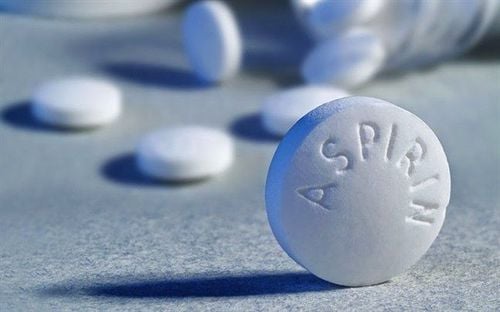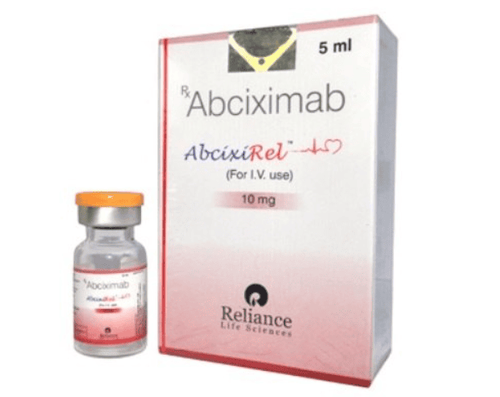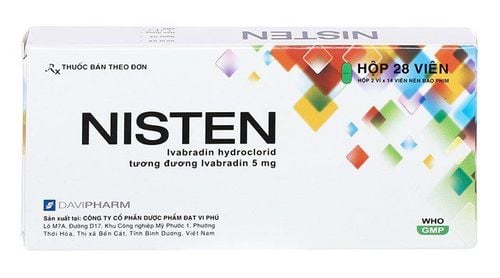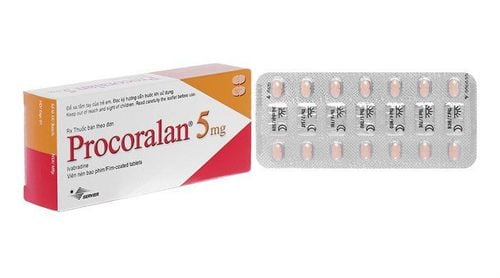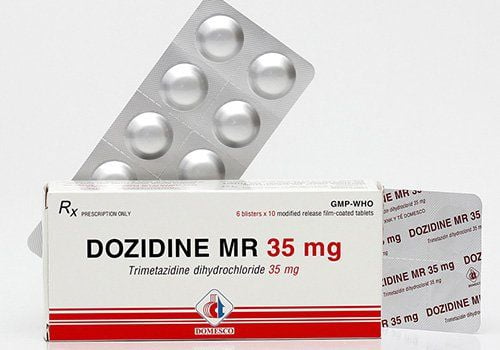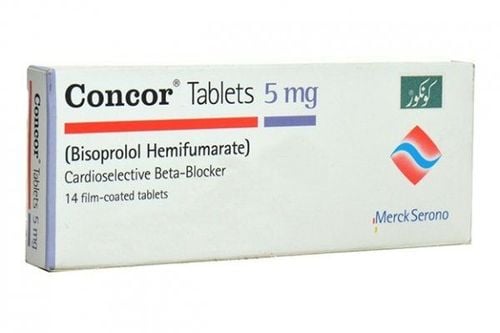This is an automatically translated article.
The article was professionally consulted by MSc Nguyen Van Phong - Internal Medicine and Cardiology Interventionist, Cardiovascular Center - Vinmec Times City International Hospital. The doctor has more than 15 years of experience in the field of cardiology.Angina is chest pain caused by decreased blood flow to the heart muscle or ischemic heart disease. This is a typical symptom of coronary artery disease. Angina can interfere with some normal activities. If left untreated, angina can lead to the most dangerous outcome of heart attack, heart failure, and even death.
Cardiovascular disease is the number 1 cause of death. However, if cardiovascular diseases are screened and detected early, the prognosis for treatment will be better, providing a good quality of life and prolonging life. Angina is a symptom that signals a high probability that a person has coronary artery disease. If not detected and treated promptly, angina or coronary artery disease can progress to the following pathologies:
1. Myocardial Infarction
Most cases of angina are caused by coronary artery disease (the blood vessel that nourishes the heart). Over time, "fat" (cholesterol) accumulates in plaques, sticking to the walls of the coronary arteries.When these plaques crack, break off, triggering the formation of blood clots at the fracture site. The blood clot can then block, block blood supply to the heart muscle, and damage an area of the heart muscle, called a myocardial infarction.
MORE: Unstable angina and myocardial infarction
The risk of a heart attack depends on several factors, such as age, blood pressure, and the degree of blockage in the blood vessels. Symptoms of an angina attack suggestive of a heart attack include:
Severe and persistent chest pain, usually in the center of the chest in front of the breastbone and may feel like a feeling of pressure or pressure. chest compression. Pain spreading to other parts of the body: the person may feel pain traveling from the chest to the arm (usually the left arm, but it can affect both arms), to the jaw, neck, spread to the back and down to the abdomen Feeling short of breath, short of breath Nausea, vomiting Feelings of anxiety, including panic A heart attack is a serious cardiovascular emergency, in some cases very serious. experiencing mechanical complications such as myocardial perforation, acute mitral regurgitation due to a reduced or dysfunctional myocardial column, causing valve prolapse, myocardial infarction... If the above cases occur, the mortality rate often high, even sudden death.
Myocardial infarction is treated by using a combination of drugs to improve blood flow to the myocardium, using anticoagulants, antiplatelet agents, and vascular interventions by dilatation and stenting of the coronary arteries. PCI) or bypass surgery (aortic-coronary bypass).
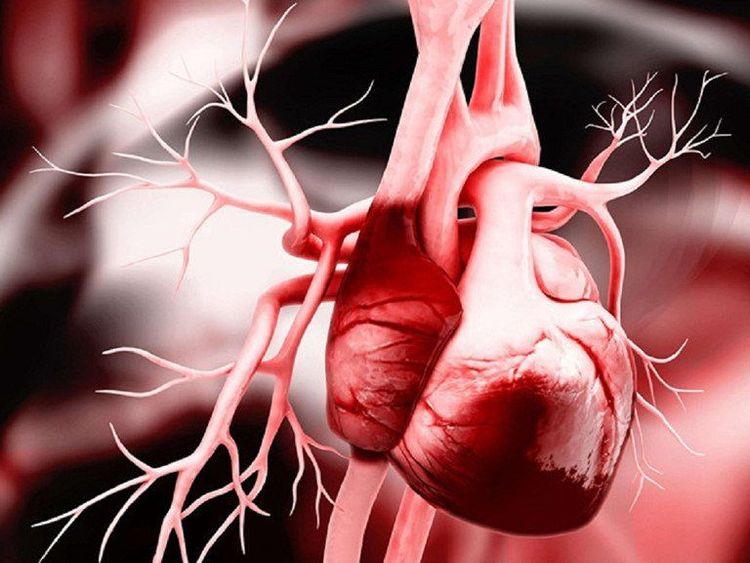
2. Heart failure
In the case of acute myocardial infarction, the contractile function is reduced even without movement, causing acute heart failure after myocardial infarction, especially if blood pressure drops too low, it will lead to "cardiogenic shock". At that time, the other organs do not receive enough blood to function properly, the whole body will be affected and the risk of death is high.If the blood vessels supplying the heart are not completely blocked, but this situation lasts for a long time, repeated episodes of angina with exertion, the heart muscle has to work in a long-term ischemic state. chronic heart failure. Patients will often feel short of breath, tired and, if left untreated, heart failure will get worse. Late treatment of coronary heart disease is difficult to improve heart failure.
3. Arrhythmia
Arrhythmia is an abnormal heart rhythm, which can be fast or slow compared to the average speed, but the most severe is ventricular fibrillation and then ventricular tachycardia. Cardiac arrhythmias are also considered severe with prolonged atrial fibrillation and third-degree AV block, hemodynamic changes, hypotension, and heart failure. Cardiac arrhythmias are often caused by damage to the ischemic heart muscle and affect the electrical conduction system in the heart. If the arrhythmia is not treated, it can lead to heart failure or even death.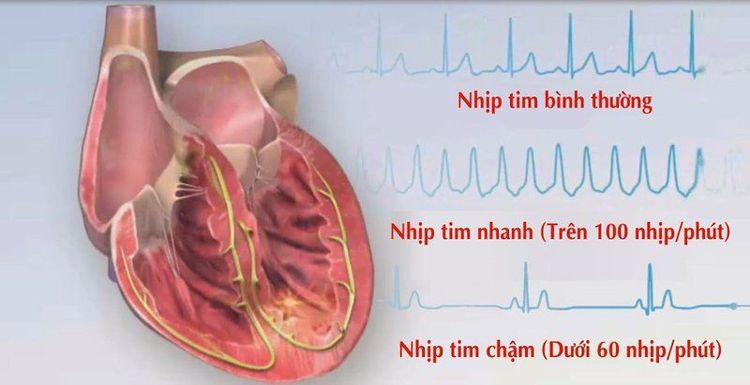
4. Stress, excessive anxiety, depression
Living with a condition like angina that is frequent, repetitive, day in and day out without definitive treatment can cause feelings of stress and anxiety in some people, especially in the elderly. year old. As a result, it can lead to depressive symptoms.Signs suggestive of a possible negative psychological disorder are when the person:
Or feels frustrated, depressed or hopeless Having little or no interest or pleasure in doing things, including both previously enjoyed Insomnia Anxiety Irritability Self-isolation Depression not only affects mental health, but can also adversely affect physical health. Treatments for depression include antidepressants and talk therapy called cognitive behavioral therapy. However, in patients with ischemic angina, treatment of coronary artery disease is the core treatment.
In summary, angina is caused by ischemic heart disease, most often due to coronary artery disease. While it may not be life-threatening at first, it is a warning sign that the person may be at risk for a heart attack or stroke, heart failure, etc. Therefore, along with treatment With treatment and healthy lifestyle changes, angina can be gradually controlled and worse long-term outcomes are minimized.
To protect cardiovascular health in general and detect early signs of cardiovascular disease, customers can sign up for the Cardiovascular Screening Package of Vinmec International General Hospital. The examination package helps to detect cardiovascular problems at the earliest through tests and modern imaging methods. The package is for all ages, genders and is especially necessary for people with risk factors for cardiovascular disease and symptoms of angina.

Please dial HOTLINE for more information or register for an appointment HERE. Download MyVinmec app to make appointments faster and to manage your bookings easily.





